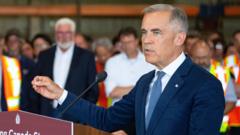Is Trump Now the Center of an Epstein Conspiracy Theory?

# Understanding the Dynamics of Conspiracy Theories in American Politics: The Case of Donald Trump
In a landscape where information is abundant yet often misleading, the role of conspiracy theories in shaping political narratives has become increasingly significant. One figure who has undeniably leveraged this phenomenon is Donald Trump. For over a decade, he has not only entertained conspiracy theories but has also made them a cornerstone of his political identity. This article delves into the intricate dynamics of conspiracy theories, using Trump's relationship with them as a lens to understand their broader implications in American politics.
## The Rise of Conspiracy Theories
### What Are Conspiracy Theories?
Conspiracy theories are alternative explanations to significant events that often rely on the belief that powerful entities are secretly manipulating circumstances for their own benefit. These theories typically thrive in environments characterized by distrust in institutions and leaders.
### The Appeal of Conspiracy Theories
Why do people gravitate towards conspiracy theories? Several psychological and sociological factors contribute to this phenomenon:
- **Distrust of Authority:** Many individuals feel disenfranchised by mainstream institutions, leading them to seek alternative narratives that validate their suspicions.
- **Need for Control:** In times of uncertainty, conspiracy theories provide a sense of understanding and control over complex situations.
- **Community and Identity:** Engaging in conspiracy theories can foster a sense of belonging among like-minded individuals, creating communities that share common beliefs.
## Trump's Conspiracy Theatre
### Key Conspiracy Theories Associated with Trump
Trump’s political career has been marked by a series of high-profile conspiracy theories. Some of the most notable include:
- **Birtherism:** Trump was one of the leading figures who questioned Barack Obama’s birthplace, suggesting that he was not a legitimate president.
- **Election Fraud Claims:** After losing the 2020 presidential election, Trump promoted unfounded claims that the election was rigged, galvanizing a significant portion of his base.
- **Pizzagate:** Trump endorsed and shared support for figures who propagated the unfounded theory that Hillary Clinton was involved in a child sex trafficking ring.
These theories were not merely fringe ideas; they were woven into the fabric of Trump’s political narrative, painting his opponents as not just wrong but as morally corrupt.
### The Epstein Controversy
The recent scrutiny surrounding Jeffrey Epstein illustrates the precarious position Trump finds himself in. Epstein, a convicted child sex trafficker with connections to numerous high-profile individuals, serves as a focal point for ongoing discussions about accountability and justice.
#### Trump’s Shift in Tone
Trump’s recent dismissal of the Epstein saga as a “boring story” drew swift backlash from his supporters, many of whom have been deeply invested in uncovering the truth behind Epstein’s network. Trump’s subsequent labeling of the discussions as a “scam” highlights his attempts to distance himself from a narrative he once contributed to, reflecting a shift in his usual bravado to a more defensive posture.
### The Backlash from His Base
The reaction from Trump’s supporters was immediate and intense. Many felt betrayed by his dismissal of a topic that resonates with their frustrations regarding accountability among the elite. The backlash illustrates a critical dynamic: while Trump has historically been the purveyor of conspiracy theories, he now finds himself at the mercy of the very narratives he helped create.
## The Psychological and Political Implications
### The Dangers of Conspiracy Theories
Conspiracy theories can have dangerous consequences, particularly when they gain traction among a large segment of the population. The emotional truths that underpin these theories often resonate deeply, leading to:
- **Polarization:** Conspiracy theories can deepen divisions within society, fostering an “us versus them” mentality.
- **Distrust in Institutions:** As individuals become more entrenched in their beliefs, trust in established institutions erodes, leading to a dysfunctional political landscape.
- **Radicalization:** In some cases, conspiracy theories can inspire individuals to take extreme actions, believing they are fighting against perceived injustices.
### The Role of Social Media
Social media platforms have amplified the spread of conspiracy theories. Algorithms often favor sensational content, perpetuating misinformation and allowing conspiracy theories to flourish.
- **Echo Chambers:** Users are often exposed to content that aligns with their existing beliefs, creating echo chambers where dissenting opinions are dismissed.
- **Virality of Misinformation:** Conspiracy theories can spread rapidly, often without adequate fact-checking or scrutiny.
## The Future of Conspiracy Theories in Politics
### A Growing Concern
As the political landscape continues to evolve, the role of conspiracy theories remains a critical concern. The implications extend beyond individual politicians; they affect the fabric of democracy itself.
- **Challenges to Accountability:** If powerful figures are not held accountable, the cycle of conspiracy and distrust is likely to continue.
- **Impact on Governance:** Conspiracy theories can hinder effective governance by creating distractions and divisions, making it difficult for leaders to address pressing issues.
### Potential Solutions
To combat the rise of conspiracy theories, a multi-faceted approach is necessary:
- **Promoting Media Literacy:** Educating the public on critical thinking skills and media consumption can empower individuals to discern credible information.
- **Encouraging Open Dialogue:** Fostering environments where differing opinions can be discussed respectfully may reduce polarization and build trust.
- **Strengthening Institutions:** Restoring faith in institutions through transparency and accountability is vital for rebuilding trust in democracy.
## Conclusion
Donald Trump’s journey through the labyrinth of conspiracy theories provides a compelling case study of their power and consequences in modern politics. As he grapples with the fallout of his own narratives, it becomes clear that the monsters created cannot easily be controlled or dismissed.
The obsession with topics like Jeffrey Epstein is not just about sensationalism; it reflects a broader societal angst regarding justice and accountability. As the landscape of conspiracy theories continues to evolve, it is essential for individuals and leaders alike to engage critically with the narratives that shape our understanding of the world.
As we navigate this complex terrain, one question lingers: How can we reclaim the narrative and ensure accountability in a political environment rife with conspiracy?
### FAQs
What are the main reasons people believe in conspiracy theories?
People often believe in conspiracy theories due to distrust of authority, a need for control in uncertain situations, and the desire for community among like-minded individuals.How have conspiracy theories influenced Donald Trump's political career?
Trump has utilized conspiracy theories to galvanize his base, framing his opponents as corrupt and morally inferior, which has significantly shaped his political narrative.What are the potential dangers associated with conspiracy theories?
Conspiracy theories can lead to societal polarization, erosion of trust in institutions, and in extreme cases, radicalization and violent actions by individuals who feel compelled to act on their beliefs. The challenges posed by conspiracy theories are significant, yet the opportunity for change lies in our collective ability to foster critical thinking and accountability. How will you contribute to a more informed and engaged society? #conspiracytheories #DonaldTrump #politicalaccountabilityPublished: 2025-07-16 16:00:16 | Category: News



